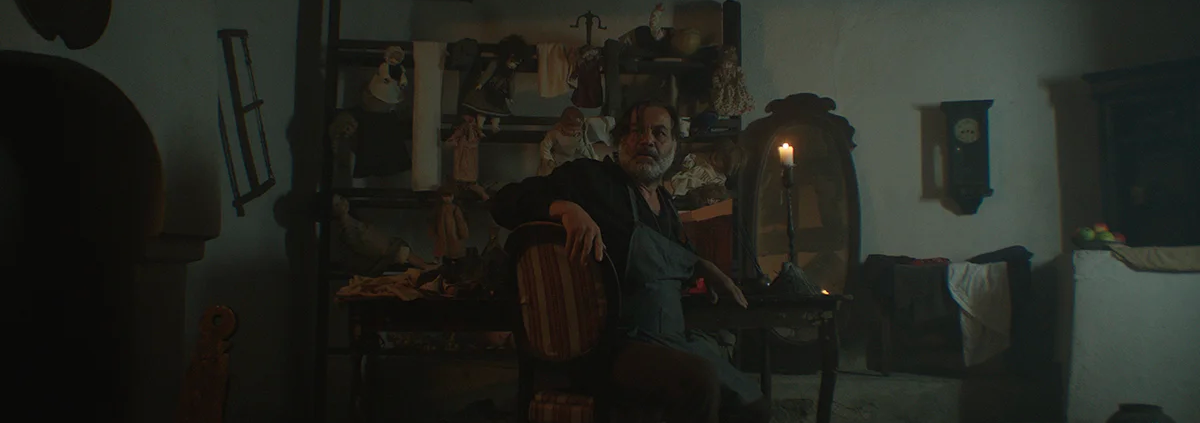The Erlking’s Lullaby
It is rare that a debut film is realized at such a high artistic level that it leaves ineffaceable impressions. One such is the film Ninullë (Lullaby) (2023), written and directed by young Swiss-based filmmaker Adrian Asllani.
I had the opportunity to pre-read the first drafts of the script and comment on them with my notes. When I was allowed to see the finished film, I was impressed by how precisely the script was written in the visual aspect. For instance, I noticed that director Asllani had visually broken down his script to the smallest detail with almost mathematical precision. The imagery was incredibly close to that which I had read in the script. Almost every shot was realized through the lens, as also described in detail in the script, which clearly speaks to the auteur’s gift for creative visual thinking.
I would like to emphasize two main characteristic elements in the film “Ninullë”: The authentic creativity of the conception – the realization of the idea and the subject matter – and the unique atmosphere that this film gives us.
Asllani deals with a theme that at first sight seems peculiar but unfolds a potential of universal proportions. The father-son relationship is expressed in this film in several dimensions. In the past and present of the characters, in their emotional memory, but also in the fiery “illness” of the son (Lis Kamberi), who lives between two worlds – the real and the surreal-hallucinatory. The father (Avni Dalipi) himself embodies a form of the Erlkönig, he is part of his son’s nightmare. The portrayal of this relationship also succeeds thanks to Dalipi’s refined acting, developed with the greatest emotional and psychological depth. The fever that afflicts the boy seems conceptually ambiguous, both as a fever illness and as a fear and nightmare of the Erlkönig who visits him regularly. Therefore, in this relationship, the emotional arc develops and ends with a significant and substantial transformation of the main character.
Asllani’s approach is interesting because it is based on the creative premise of laying out the film in all its components into an exact and continuous narrative with images, work with actors and visual composition. This gives the film identifiable genre-specific thriller elements. Cinematographer Petrit Ukëhajdaraj has done excellent and remarkable work, which must be praised at this point! Thus, this film is thoroughly filled with an atmosphere that keeps the viewer in constant suspense and unbroken curiosity. A significant element in creating the atmosphere of this short film is also the environment. In a house that from the appearance, including the lighting (only in candlelight) transports the feeling of a distant time and foreign surrounding to us. This is due to the scenography and props (realized by Mentor Berisha), which put the environment in relation to the time in which the film takes place.
We, as viewers, are convinced by this cinematographic realization, both in the aspect of the content and the artistic-aesthetic one, of the fact that the Albanian film world is joined by a promising artist who has a creative affinity to display his sensitive visual language universally and to tell particular occurrences and stories cinematically.
Welcome to the world of film Adrian!
ARIAN KRASNIQI is a well-known Playwright/Screenwriter. He is a screenwriting professor at the Faculty of Arts at the University of Pristina.
Among the well-known films he has written the script for are: »Cold November« (2018) with Ismet Sijarina, »Plum In The Throat« (2018) with Arsim Haliti, »Rooftop Story« (2017) with Gazmend Nela, a part of TV series »Stinë dashurie« (Season of Love) (2014) and many more.
It should be noted that the film »Cold November« has won several important international awards, among others, for the best screenplay, such as the one at the Tirana International Film Festival.




Leave a Reply
Want to join the discussion?Feel free to contribute!